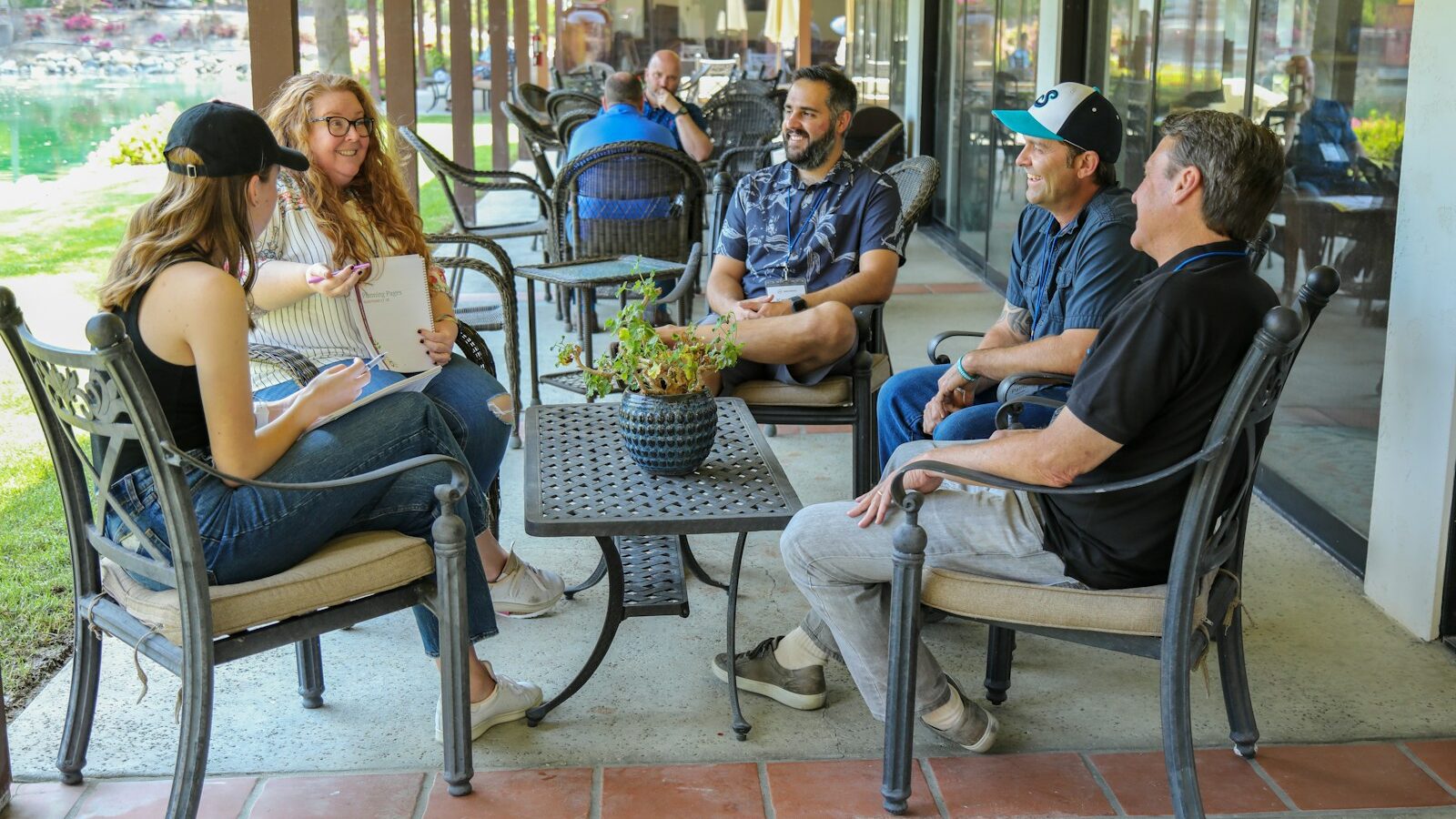Recently, I was instructed in the art of taking selfies. My friend Bill revealed one trick that solved the arm length, shaky hand, and weird angle problems. He reminded me about the timer setting on the camera. That was it. Giving ourselves just a little bit of time to adjust between pushing the shutter button and shining that bright smile made all the difference in the quality of the photo.
And I was reminded that time—even if just a little extra—is such a gift.
Today, we take more selfies than ever before, but how often do we pause to self-examine our lives? How often do we take the time to become aware of our calling toward a transformed, kingdom-oriented life? How often do we take a moment to ask God for help and reflect on his ever-presence?
Saint Ignatius of Loyola highlighted the spiritual practice of Examen as one his revered Spiritual Exercises. The essence of this practice is to cultivate a heightened awareness in order to train our minds to discern God’s gentle touch in our everyday lives. It is an intentional exercise that prompts us to dissect our day, moment by moment, and identify God’s footprints.
In a way, it is like taking spiritual “selfies.”
Discovering the age-old “selfie”
Examen is based on the ideas expressed in many places in Scripture, such as in Psalm 139:23-24:
Search me, God, and know my heart; test me and know my concerns. See if there is any offensive way in me; lead me in the everlasting way.
Also, Psalm 73:28,
But as for me, God’s presence is my good. I have made the Lord God my refuge, so I can tell about all you do.
Doing the Examen can awaken in you so much joy, peace, and encouragement, but it can also bring up feelings of guilt. It is no small thing to ask God to examine and reveal to us what is in our sinful hearts. But the purpose of Examen is not to judge ourselves but to pay attention to inner truths about ourselves without condemnation—for as Romans 8:1 reminds us, in Christ, we are no longer condemned.
The point is to gain self-knowledge and find God in all things, all moments of the day.
And as we reflect upon the day, the Holy Spirit can guide us in our introspection, revealing emotions and thoughts that were perhaps hovering just beneath our consciousness.
Tips to a great Examen
Unlike some spiritual practices that require a retreat from the world, Examen is deeply entrenched in our daily lives. It’s not about removing yourself from the reality of your day-to-day but about diving deeper into it. Our primary goal, then, is greater connection with God, through the development of a discerning heart. In this, we are able to recognize God’s presence and action throughout the day. This practice can be done on your own or with the help of a spiritual director.
At its core, Examen is a guided meditation, usually practiced once or twice a day for a few minutes. There are a few variations out there, and you can modify the practice so that it is truly life-giving to you. The practice is about developing a deeper LOVE for God, not perfecting yourself. Once you get used to doing the practice regularly, you’ll be able to do it in the darkness of your bedroom before going to sleep or before getting up, as you drive home from work, or during your lunch, alone or with others. You don’t have to do it every day. Some people do it once a week as part of a sabbath reflection. You can even do it in the middle of the day when you need to remind yourself that God is there and eager to help you come up with something simple and pleasant to say the next time you deal with that difficult co-worker.
My five steps to the Examen selfie
Below I will share how I organize the five steps to the Examen practice.
As with any food recipe, making it our own is key to our enjoyment. The same holds for spiritual practices. We can practice them like someone else or modify them to our liking. Feel free to adapt and adjust what I offer here according to what works best for you. The practice does not require journaling, but I believe it produces more fruit when we ink what we’re learning and keep track of the movement of the Spirit in our lives.
Here is my process:
1. Awareness
Begin by focusing your attention on God’s presence and express gratitude for the blessings and help you have received. This sets a positive tone and grounds you in a mindset of abundance.
2. Prayer
Ask the Holy Spirit to give you insight, understanding, and clarity as you prepare to review your day or week in more detail. You can read all or a portion of a favorite Psalm to prepare your heart to receive God’s guidance.
3. Review
Recall the events of the day or week. Bring to mind your actions, emotions, interactions, and reactions. Pay special attention to the events or moments that evoked stronger emotions, be it joy, sadness, anger, or peace. Even apathy is worth examining. Ask Jesus what those emotions within you were about and/or what he was up to within those moments. With the grace of Jesus as your backdrop, acknowledge times when you might have missed the mark or acted out of alignment with your spiritual values. This is not a moment of judgment but of recognition and understanding. You may ask yourself several questions, such as:
- What am I most (or least) grateful for?
- When did I give and receive the most love or provision from God and others?
- What was my high or low point?
- When was I closest to the Lord, and when was I moving away from Him or least aware of his presence?
4. Thanksgiving
Celebrate what God has done, and soak in God’s grace, forgiveness, and mercy.
5. Renewal
Reflect on the insights gained and ask God for the wisdom to amend your ways and more fully sense his presence daily. Consider a possible next step, a purposeful intention for today or the next day. You can even ask God to help you identify what small step might help you remember your need for Him and draw closer to Him (see John 15:5).
Examen is Ancient, Modern, and Fruitful
Despite its ancient origins, Examen is remarkably suited for modern life. It doesn’t have to take hours, only requiring a few minutes of reflection. In our fast-paced world, Examen can be a grounding experience. It reminds us that amidst the hustle and busyness, the presence of God in our lives is waiting to be recognized. The practice directs our hearts to learn from God, that like the psalmist, we would declare, “Make your ways known to me, Lord; teach me your paths.” (Psalm 25:4)
My prayer is that you would embark on this journey of daily reflection, regularly taking spiritual “selfies,” while finding deeper connection, greater insights, and a richer relationship with Jesus.
—
P.S. You can learn more about this and other practices by reading the following books:
- Uncharted: Navigating Your Unique Journey of Faith by Inés Franklin (I include explanations and prompts for spiritual practices at the end of each chapter.)
- Journey with Jesus by Larry Warner
- Spiritual Disciplines Companion: Bible Studies and Practice to Transform Your Soul by Jan Johnson
- Spiritual Disciplines Handbook: Practices That Transform Us by Adele Ahlberg Calhoun
- The Spirit of the Disciplines: Understanding How God Changes Lives by Dallas Willard
Related Articles

How to Start and Lead a Life-Changing Group Bible Study

7 Essential Tips for Deepening Your Bible Study


